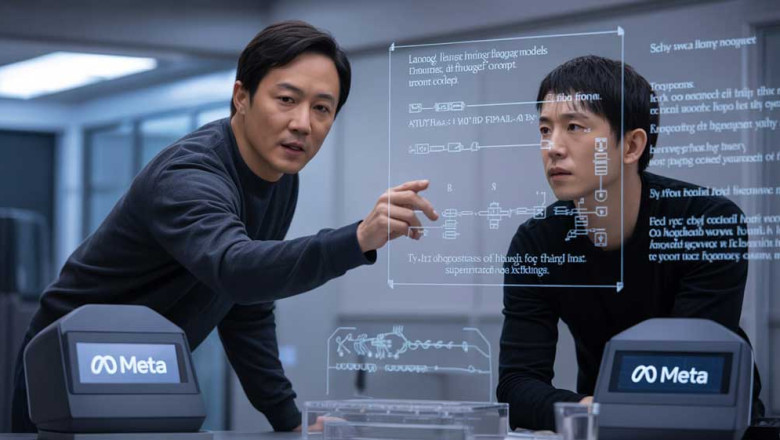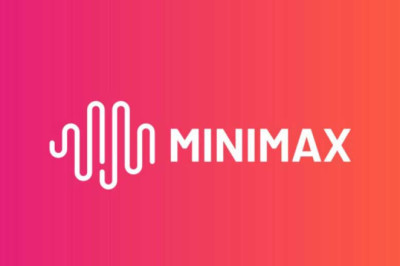
views
In a major development in the rapidly evolving field of artificial intelligence, two of OpenAI’s most influential researchers, Jason Wei and Hyung Won Chung, have announced their departure from the organization to join Meta’s newly launched Superintelligence Lab. This move marks a significant moment in the intensifying competition among leading AI labs striving to develop artificial general intelligence (AGI) and other next-generation AI technologies.
Pioneers Behind OpenAI’s Advanced AI Models
Jason Wei and Hyung Won Chung have collaborated closely on some of OpenAI's most noteworthy model developments, including the widely discussed o1, o3, and Deep Research models, which have advanced the frontier of large language models (LLMs) and reasoning capabilities.
-
Jason Wei is widely recognized for his pioneering work in language model prompting techniques, including the popularization of chain-of-thought prompting, which enables models to decompose complex reasoning tasks into step-by-step solutions. Wei’s expertise extends to reinforcement learning from human feedback (RLHF), a cornerstone technique employed by OpenAI to align AI systems with human values and goals. Prior to joining OpenAI in 2023, Wei and Chung worked together at Google Brain, where they developed foundational reinforcement learning architectures that informed their later contributions at OpenAI.
-
Hyung Won Chung has specialized in reasoning-based AI architectures and agent-based autonomous systems. His research has emphasized developing mechanisms for models to perform multi-step reasoning and complex problem solving, vital for improving AI systems beyond simple pattern recognition toward actual understanding and decision-making. Chung’s work in scaling and integrating reasoning with deep learning approaches has been central to OpenAI’s efforts to build more robust and interpretable AI models.
Together, Wei and Chung have been instrumental in advancing OpenAI’s Deep Research program, which explores next-generation AI models that integrate multimodal inputs, enhanced reasoning skills, and reinforcement learning to approach more human-like cognitive abilities.
Meta’s Bold Ambitions with the Superintelligence Lab
Meta announced the creation of the Superintelligence Lab in mid-2025 as a flagship initiative to accelerate breakthroughs toward AGI. Under the leadership of Alexandr Wang, founder of Scale AI, and Nat Friedman, a former CEO of GitHub, the lab is focused on building AI systems capable of human-level reasoning, creativity, and learning.
The Superintelligence Lab aims to push beyond current large-scale deep learning paradigms by exploring new architectures, training techniques, and alignment methods that make AI systems safer, more reliable, and ultimately capable of autonomous scientific and creative innovation.
Poaching Top Talent Amid Industry-wide Competition
Meta’s recruitment of Wei and Chung is part of a broader wave of competitive hiring among AI organizations. In recent months, Meta has reportedly offered extraordinarily lucrative incentives—some packages priced as high as $300 million over four years in total compensation, including stock options and bonuses—to entice AI researchers from competitors such as OpenAI, Google DeepMind, Anthropic, and others.
This talent competition reflects an ongoing arms race within the AI industry, where leading labs vie for researchers with cutting-edge expertise in reinforcement learning, reasoning, language models, and AI alignment—the critical areas believed to unlock future AGI capabilities.
OpenAI insiders have confirmed the departure of Wei and Chung, noting that they have formally deactivated their OpenAI credentials and internal access. Both researchers are expected to play key roles in Meta’s efforts not only in pushing forward superintelligent AI models but also in addressing the complex problem of aligning such powerful systems with human values—a challenge known as the “superalignment” problem.
Implications for the AI Ecosystem
This high-profile transition signals several important trends:
-
Increasingly Fluid AI Talent Market: Top AI researchers are highly sought after, and their movement between organizations can influence the pace and direction of breakthrough research.
-
Escalating Investment in AGI: Meta’s willingness to invest hundreds of millions in personnel underscores the strategic priority companies place on leadership in AGI development.
-
Rising Emphasis on Alignment: Wei and Chung’s expertise in reinforcement learning and reasoning positions them to contribute substantially to both capabilities and alignment, a dual priority for industry leaders.
-
Potential Shifts in Research Paradigms: With Wei and Chung bringing insights from OpenAI’s successes in prompting and reinforcement learning to Meta, their work could catalyze novel approaches that differ from existing AI development paths.
Final thoughts
Jason Wei and Hyung Won Chung’s move to Meta marks a significant milestone in the ongoing global race to develop more advanced, capable, and aligned AI systems. Their deep expertise in reinforcement learning, reasoning, and language model innovation, honed through years at Google Brain and OpenAI, makes them invaluable assets for Meta’s new Superintelligence Lab. As the competition intensifies, the AI community will be closely watching how this shift influences research priorities, technological advances, and the broader quest for safe and powerful artificial general intelligence.




















Comments
0 comment